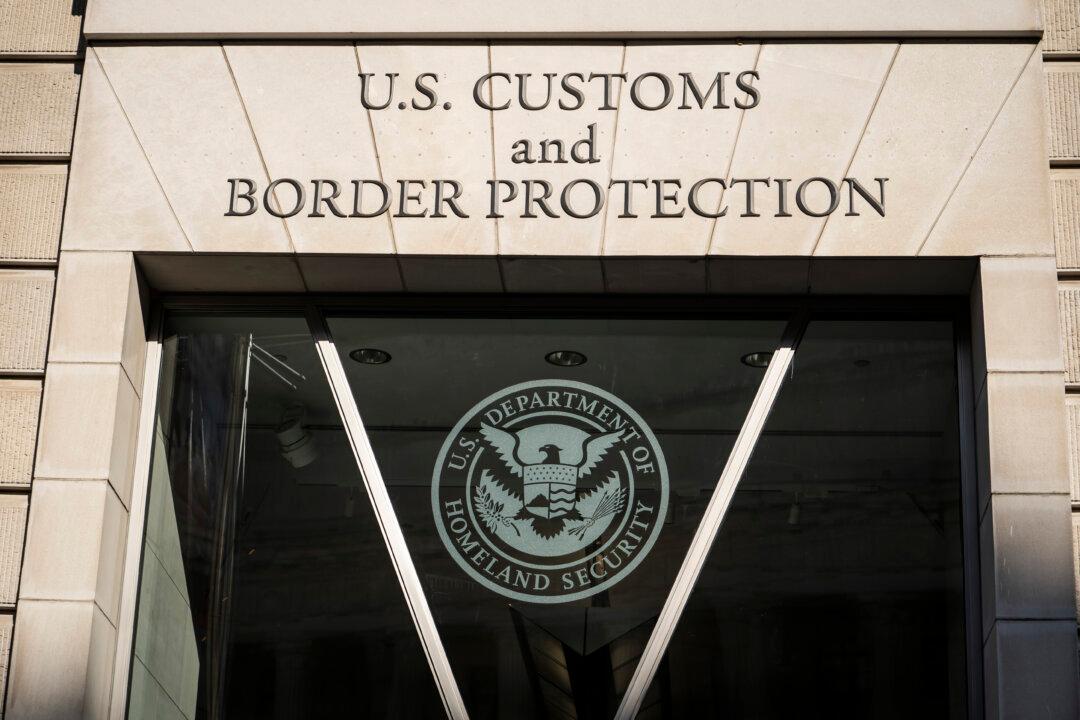China is one of the world’s biggest markets, but don’t expect business as usual when it comes to how companies operate inside the country. The Chinese Communist Party (CCP) permeates every aspect of society and is establishing itself inside foreign-owned, private companies.
In China, about 70 percent of foreign-funded companies, or 106,000 in number, have established Party branches, said Qi Yu, deputy head of the CCP’s Organization Department, at a news conference held on Oct. 19 at the Party’s important conclave, the 19th National Congress.
Companies operating in China are required by law to establish Party branches, and these are not mere rubber-stamp organizations. According to the CCP, company party organizations can take part in decision-making to ensure that the company’s activities are in line with the country’s policies. The organization is also in charge of any labor union. In addition, it is the company’s sole responsibility to provide funding to finance the party organization’s activities. At some firms, the Communist sickle-and-hammer symbol is posted around the office space.
The latest number is a sharp increase from 2011 data provided by the Organization Department, which stated about 47,000 companies that receive foreign investment have complied with rules to set up a party apparatus.
The number of Chinese-owned private companies in China with party branches also saw a spike—topping 2.72 million, which accounted for 67.9 percent of all Chinese-owned companies, according to Qi.
“This explains the CCP’s mentality, which is that it doesn’t trust anyone or anything. It must have its own people to monitor from within. So there are party organizations everywhere, including religious organizations such as temples and Buddhist nunneries,” said Xia Yeliang, former associate professor of economics at Peking University, in an interview in Washington, D.C. with the New York-based television station New Tang Dynasty Television (NTD).
Party control within companies is nothing new. According to the Chinese news website China Business, which is run by the CCP-affiliated think tank, the Chinese Academy of Social Sciences, party branches in foreign-invested companies have a history dating back to the 1980s, when China first opened itself up to foreign investment. DuPont was the first foreign company in the Pudong New District to set up a Party branch when it opened an office there in 1990.
Recently, the CCP has slowly begun to exert greater control over local and foreign companies.
In August, Reuters reported that a European company with a Chinese joint-venture was pressured to hire more party members and talk about its investment decisions with its party branch. In another instance, a U.S. firm moved its new facility to a location suggested by its party branch—because the local authorities were promoting investment in that area.
Now, foreign-invested and private companies, under the influence of their respective party branches, could be swayed to invest more in China’s financially-strapped State-Owned Enterprises (SOEs), which the CCP is struggling to keep afloat. This year, in an attempt to sustain SOEs, the CCP allowed the sales of minority stakes in SOEs to private investors.
The Wall Street Journal reported in October that Internet regulators in China planned to take 1 percent stakes in the country’s biggest Internet companies, Tencent, Weibo, and Youku Tudou, a video-sharing site owned by e-commerce giant Alibaba, in order to be directly involved with the companies’ decision-making, a further sign of the party’s desire to exert control over private companies.
State official Qi Yu elaborated on the benefits of a party apparatus for companies, stating that it can help them better understand China’s economic policies, resolve labor disputes, and provide “positive energy.” Qi’s remarks, however, drew much doubt and criticism from scholars and Chinese netizens.
“On the surface, it might appear that [companies] are voluntarily setting up party branches. However, there is in fact an underlying threat. If these private companies do not listen, they will have a difficult time [doing business] onward,” said Xia.
Xia added that with party branches influencing how companies conduct business, that could only mean one thing—that private companies in China are losing their ability to innovate, and ultimately, their competitive edge.
“[The CCP] is trying to create a so-called free economy inside a birdcage. Sometimes, [the company’s party branch] will play the traditional role of the CCP labor union, other times it will more or less play the role of coordinating with employers,” said Hu Ping, the chief editor of Beijing Spring, a pro-democracy publication run from New York, in an interview with NTD.
But Hu said the true purpose of their existence is for monitoring and surveillance.
On Weibo, China’s version of Twitter, a netizen from Zhejiang Province wrote, “If there is a party branch [in a company], there wouldn’t be Chinese workers going on strike, protesting, or fighting. They would put their heads down and silently work as hard as slaves.”
“The purpose is to better control the workers, to bring control to every corner of society, like a net that catches everything,” said another netizen with the Weibo handle “Yukun Qijiu Deputy Director.”





